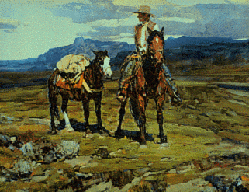
There are many different versions of this ballad. Some were wild exaggerations made up by vaudeville performers, in which Merrick's wife-to-be died as a result of trying to suck the poison out with a broken tooth.
'Now Molly had a broken tooth, and so the poison killed them both.'
On this song, I used a Martin 0021 6-string and a Vega/Ode 5-string banjo. Both instruments are tuned down 1/2 step. 'Springfield Mountain' is here in honor of Spring. Watch your step.
[C] Right – tum – a – new – rife – a – lime – a – diddle – do
[Am] On Springfield Mountain there did dwell [E7] tum – a – row
[Am] On Springfield Mountain [G]there did dwell A [F] handsome youth I knew [E7] full well
[Am] Right – tum – a – new – rife – a – [G] lime – a – diddle – [Am] do
One Monday morning he did go
Right – tum – a – new – rife – a – lime – a – diddle – do
One Monday morning he did go tum – a – row
One Monday morning he did go Down in the meadow for to mow
Right – tum – a – new – rife – a – lime – a – diddle – do
He mowed once round that lengthy field
Right – tum – a – new – rife – a – lime – a – diddle – do
He mowed once round that lengthy field tum – a – row
He mowed once round that lengthy field And a poison serpent bit his heel
Right – tum – a – new – rife – a – lime – a – diddle – do
They brought him to his Molly dear
Right – tum – a – new – rife – a – lime – a – diddle – do
They brought him to his Molly dear tum – a – row
They brought him to his Molly dear Which made her feel so mighty queer
Right – tum – a – new – rife – a – lime – a – diddle – do
Oh Johnny dear why did you go?
Right – tum – a – new – rife – a – lime – a – diddle – do
Oh Johnny dear why did you go? tum – a – row
Oh Johnny dear why did you go Down in the meadow for to mow?
Right – tum – a – new – rife – a – lime – a – diddle – do
Oh Molly Dear now don't you know
Right – tum – a – new – rife – a – lime – a – diddle – do
Oh Molly Dear now don't you know tum – a – row
Oh Molly Dear now don't you know It's father's field and must be mowed
Right – tum – a – new – rife – a – lime – a – diddle – do
On Springfield Mountain there did dwell
Right – tum – a – new – rife – a – lime – a – diddle – do
On Springfield Mountain there did dwell tum – a – row
On Springfield Mountain there did dwell A handsome youth I knew him well
Right – tum – a – new – rife – a – lime – a – diddle – do






